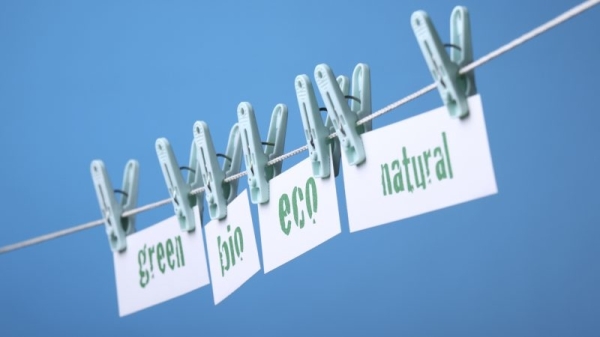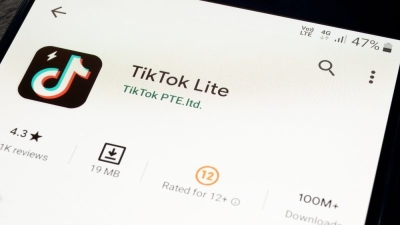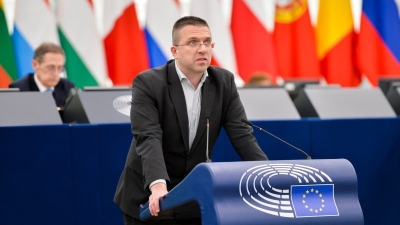Banning greenwashing: new EU rules to ReSet the Trend in the fashion sector

When shopping, we often see clothes with labels claiming they are ‘’eco-friendly’’, ‘’made from recycled-bottles’’, ‘’100% natural’’ – but how can we know which of these claims can be trusted? The European Commission has proposed new criteria to put an end to greenwashing and misleading environmental claims, including in the textiles sector. This will ensure consumers get better quality information, empowering them to make sustainable choices.
Europeans can play a key role in the EU’s green transition through their purchasing decisions. Surveys show that consumers are willing to purchase more eco-friendly products. However, to make properly informed choices, they need access to trustworthy information about the sustainability of the products and services.
Unsubstantiated green claims: a problem for EU consumers
Consumer trust in green claims is currently low. This is not surprising, as 53% of green claims on products and services make vague, misleading or unfounded information and 40% of claims have no supporting evidence at all.
A Eurobarometer survey found that Europeans are indeed confused by the stream of incomparable and diverse environmental information out there – about half of consumers find it difficult to differentiate between environmentally friendly and other products and only about half of them trust producers’ claims about environmental performance. Greenwashing is particularly prevalent in the fashion industry: a recent screening of green claims in the textile, garment and shoe sector suggested that 39% could be false or deceptive.
“I really think that regulating greenwashing becomes a priority when we talk about sustainable fashion. It is crucial in order to stimulate authentic, sustainable brands to continue their activities. At the same time, regulating greenwashing can imply more efforts from the big players in the market to truly address the problems of overproduction and overconsumption which are still present in the clothing industry worldwide”, said Niccolo Cipriani, founder of Italian sustainable fashion start-up Rifo.
Clear new rules to help consumers and businesses
To protect consumers and to support companies that are making genuine efforts to supply eco-friendly products and services to the market, the European Commission has proposed new rules on green claims. In particular, the proposal targets explicit voluntary claims about the environmental performance of a product or service, or the company in general, that are not currently covered by other EU rules. Along with a March 2022 proposal on empowering consumers for the green transition, the aim is to ensure that consumers are protected and companies making genuine efforts to increase the environmental sustainability of their products and activities are recognised and rewarded.
So, what will the proposed new rules mean for fashion companies in the EU? Before companies communicate any ‘green claims’ to consumers, these claims will need to be independently verified and backed up by scientific evidence. As part of the scientific analysis, companies will have to identify the environmental impacts that are actually relevant to their product, as well as identifying any possible trade-offs, to give a full and accurate picture.
Saartje Boutsen, co-founder of Studio D, which advises and supports fashion companies in sustainable business management, said that she welcomes the fact that the European Union is going a step further in preventing greenwashing. “It is unacceptable for fashion brands to claim ‘sustainable, green’ collections without clearly specifying exactly what efforts they make to this end. This is misleading information for consumers. However, I continue to encourage fashion brands to communicate about their sustainability efforts, but in an honest, authentic and transparent way. Explain precisely what you are doing, but also dare to say what is not yet reached and what you are working towards. 94% of consumers remain loyal to a brand that is completely transparent”, she said.
Reliable and transparent labelling
The EU proposal will also regulate environmental labels. To control the proliferation of these labels, new public labelling schemes will not be allowed, unless they are developed at EU level, and any new private schemes will need to show higher environmental ambition than existing ones and get pre-approval. The proposal also includes detailed rules about environmental labels in general: they must be reliable, transparent, independently verified, and regularly reviewed.
The mandatory new criteria in the proposed Directive will support other well-established voluntary EU initiatives that are tackling greenwashing – such as the EU Ecolabel, which can already be found across the EU on many textile and footwear products.
It’s time to ReSet the Trend
This new initiative to protect consumers and businesses from greenwashing is part of a bigger plan by the EU to make the fashion sector more sustainable. With textiles and clothing among the most wasteful and polluting sectors in the EU, it’s time for a total rethink on how we produce and consume textiles. We need to re-set the trend. This is the thinking behind the EU Strategy for sustainable and circular textiles presented by the European Commission in 2022. The Strategy proposes a range of measures to transform the textile sector, from new eco-design requirements for clothing, to new ways of making producers responsible for the garments they sell throughout the product’s lifecycle. But transforming the textile sector will also require all of us to act. As a first step, you can join the Reset the Trend campaign to learn what you can do to reduce the impact of the textile sector on the environment. By acting together, we can #ReFashionNow!



